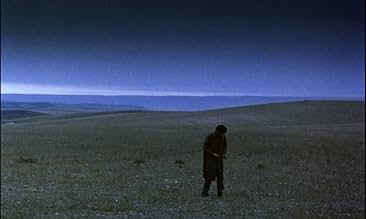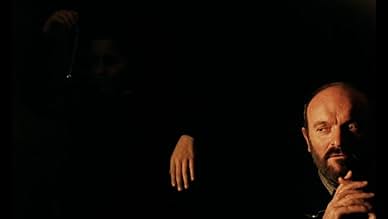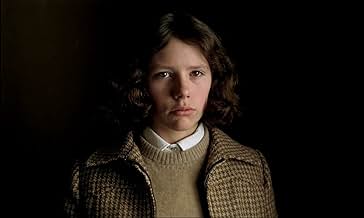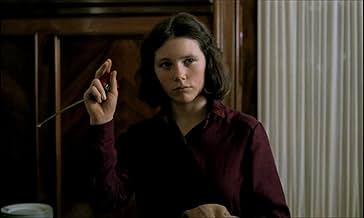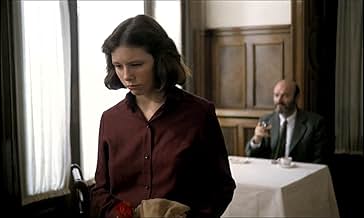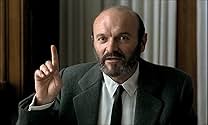A woman reflects on her childhood relationship with her father, attempting to understand the depths of his despair and the truth of his myths.A woman reflects on her childhood relationship with her father, attempting to understand the depths of his despair and the truth of his myths.A woman reflects on her childhood relationship with her father, attempting to understand the depths of his despair and the truth of his myths.
- Director
- Writers
- Stars
- Awards
- 7 wins & 2 nominations total
Aurore Clément
- Irene Ríos
- (as Aurora Clement)
- …
María Massip
- Estrella adulta
- (voice)
José Luis Fernández 'Pirri'
- Carioco
- (voice)
- (uncredited)
José García García Morilla
- Chófer
- (uncredited)
Chus Lampreave
- Casilda
- (uncredited)
Jesús Nieto
- Agustín Arenas- voz
- (uncredited)
- Director
- Writers
- All cast & crew
- Production, box office & more at IMDbPro
Featured reviews
10zetes
I don't really keep a list of most-wanted-but-unavailable movies, but, if I did, this film, the second of only three features of Victor Erice, director of Spirit of the Beehive, would have been very high on it. It is, to understate, far from a disappointment. Very much a sister film to Spirit, it's about a woman, Estrella, who as a narrator remains off screen, reminiscing about her relationship with her father (Omero Antonutti). As a child (where she is played by Sonsoles Aranguren), she worshiped the man. Behind the perceived god, though, he was quite a sad man, haunted by history. Estrella discovers a particular secret which dominates the man's mind. In her teenage years (where she's played by Iciar Bollain), that secret comes back. This is an achingly gorgeous film, very quiet and largely shot in shadowy, cold sunlight. The images are every bit as gorgeous as Spirit's, and the story is, too. Criterion apparently owns the rights to this. Many of the films that are only streaming on Hulu will never see a home video release, but they really should put this one out there. It's a masterpiece.
This story unfolds in delicate time in the history of modern Spain, as well as during a precarious time in the life of a family.
Adolescent Estrella lives in awe of her mysterious and magical father, wonderfully played by Omero Antonutti, and weary of her ever-practical mother and of their isolated life in the misty and brooding northern countryside. Estrella's fascination with her father turns to intrigue- and then to obsession- when she discovers that her father has a secret, and realizes that she is only one facet of her father's life and not the central figure, as he is to her.
After a ray of sunshine is cast into her dark and insular life by the visit of one of her father's aunts (played by the late Rafaela Aparicio in one of her best roles), Estrella yearns to capture more of the essence of her father by one day visiting "el sur" (the south)his home territory.
As Estrella enters the awkward realm of adolescence, she grows apart from her father emotionally. A tragic turn of events condemns him to remain a mythical figure for hersomeone she wonders if she ever knew at all. The supreme irony is that she is very like him.
This film is captivating, both visually and emotionally, and the audience becomes just as absorbed in the story as the characters themselves. It is one of those films whose imagery will always stay in one's memory, such as in the my favorite scene, where father and daughter sit distantly across a table from each other in an old café, listening to the eerie sound of a "pasodoble" that wafts from a wedding in another room, bringing memories of happier, simpler days.
Adolescent Estrella lives in awe of her mysterious and magical father, wonderfully played by Omero Antonutti, and weary of her ever-practical mother and of their isolated life in the misty and brooding northern countryside. Estrella's fascination with her father turns to intrigue- and then to obsession- when she discovers that her father has a secret, and realizes that she is only one facet of her father's life and not the central figure, as he is to her.
After a ray of sunshine is cast into her dark and insular life by the visit of one of her father's aunts (played by the late Rafaela Aparicio in one of her best roles), Estrella yearns to capture more of the essence of her father by one day visiting "el sur" (the south)his home territory.
As Estrella enters the awkward realm of adolescence, she grows apart from her father emotionally. A tragic turn of events condemns him to remain a mythical figure for hersomeone she wonders if she ever knew at all. The supreme irony is that she is very like him.
This film is captivating, both visually and emotionally, and the audience becomes just as absorbed in the story as the characters themselves. It is one of those films whose imagery will always stay in one's memory, such as in the my favorite scene, where father and daughter sit distantly across a table from each other in an old café, listening to the eerie sound of a "pasodoble" that wafts from a wedding in another room, bringing memories of happier, simpler days.
I feel compelled to relate this as it has been at least ten years since I saw this film (in a student union theater) and it still has a powerful hold on my memory. I have been unable to find it on video, so my recollections are fragmentary.
I was so impressed, involved, and moved by this tale that I left the cinema feeling as if I were floating just above the pavement. One is quietly and adroitly drawn in by the mystery that the young daughter in 1950s Spain senses in her father. The political dimension is brilliantly nuanced, carefully alluded to without speechifying. The wondrous cinematography captures light so deftly at times that it is almost luminous: late afternoon sunlight across a room, snow slowly falling (viewed through a window), a rain soaked street at night. As the daughter grows to adolescence the enigma of her reticent father begins to clear. It may not sound like much in my words, but from wool Victor Erice has spun gold.
I was so impressed, involved, and moved by this tale that I left the cinema feeling as if I were floating just above the pavement. One is quietly and adroitly drawn in by the mystery that the young daughter in 1950s Spain senses in her father. The political dimension is brilliantly nuanced, carefully alluded to without speechifying. The wondrous cinematography captures light so deftly at times that it is almost luminous: late afternoon sunlight across a room, snow slowly falling (viewed through a window), a rain soaked street at night. As the daughter grows to adolescence the enigma of her reticent father begins to clear. It may not sound like much in my words, but from wool Victor Erice has spun gold.
10ay9a
It must be almost twenty years since I saw this movie (and I saw it only once, when I was in Japan), but the memory of this movie remains in me like an old haunting dream from childhood. Cinematography at its best. I think, for the first time, this film made me think that the best media for poetry is not words, but vision.
I would want to recommend this to anyone who loves "Spirit of the Beehive" and thinks it cannot be surpassed. But alas, I don't know how you get this movie in USA with English subtitle.
I would want to recommend this to anyone who loves "Spirit of the Beehive" and thinks it cannot be surpassed. But alas, I don't know how you get this movie in USA with English subtitle.
10jsorribe
After "The Spirit of the Beehive" Erice retakes post-civil war Spain through the eyes of a child (and later a teenager in this case). Not only the director recreates admirably the atmosphere of those gloomy years in my country, but also succeeds in showing the relationship between a bitter, low-spirited father and his vital daughter. Wonderful cinematography and sets also contribute to create a masterwork in which every camera move, every dialogue line and every fade constitute a brilliant piece of its own. An absolute must for all cinema lovers.
50 Top Rated Spanish-Language Movies
50 Top Rated Spanish-Language Movies
See which classic and contemporary movies have landed on our list of top rated Spanish-language movies according to fan votes on IMDb.
Did you know
- TriviaDirector Víctor Erice considers this to be an unfinished project. The original script consisted of more than 400 pages and was scheduled to be shot in 81 days. 48 days into shooting, when production was to be moved to the south of Spain, producer Elías Querejeta unexpectedly suspended the project, allegedly because of financing objections by Televisión Española, the backing television network. However, Querejeta revealed years later that he made the decision because he thought the film was complete with what they'd shot so far.
- ConnectionsFeatured in The Footprints of a Spirit (1998)
- SoundtracksLa puerta del Sagrario
Composed by Enrique Granados
- How long is El Sur?Powered by Alexa
Details
- Release date
- Countries of origin
- Official site
- Language
- Also known as
- The South
- Filming locations
- Production companies
- See more company credits at IMDbPro
Box office
- Gross worldwide
- $22,720
Contribute to this page
Suggest an edit or add missing content

